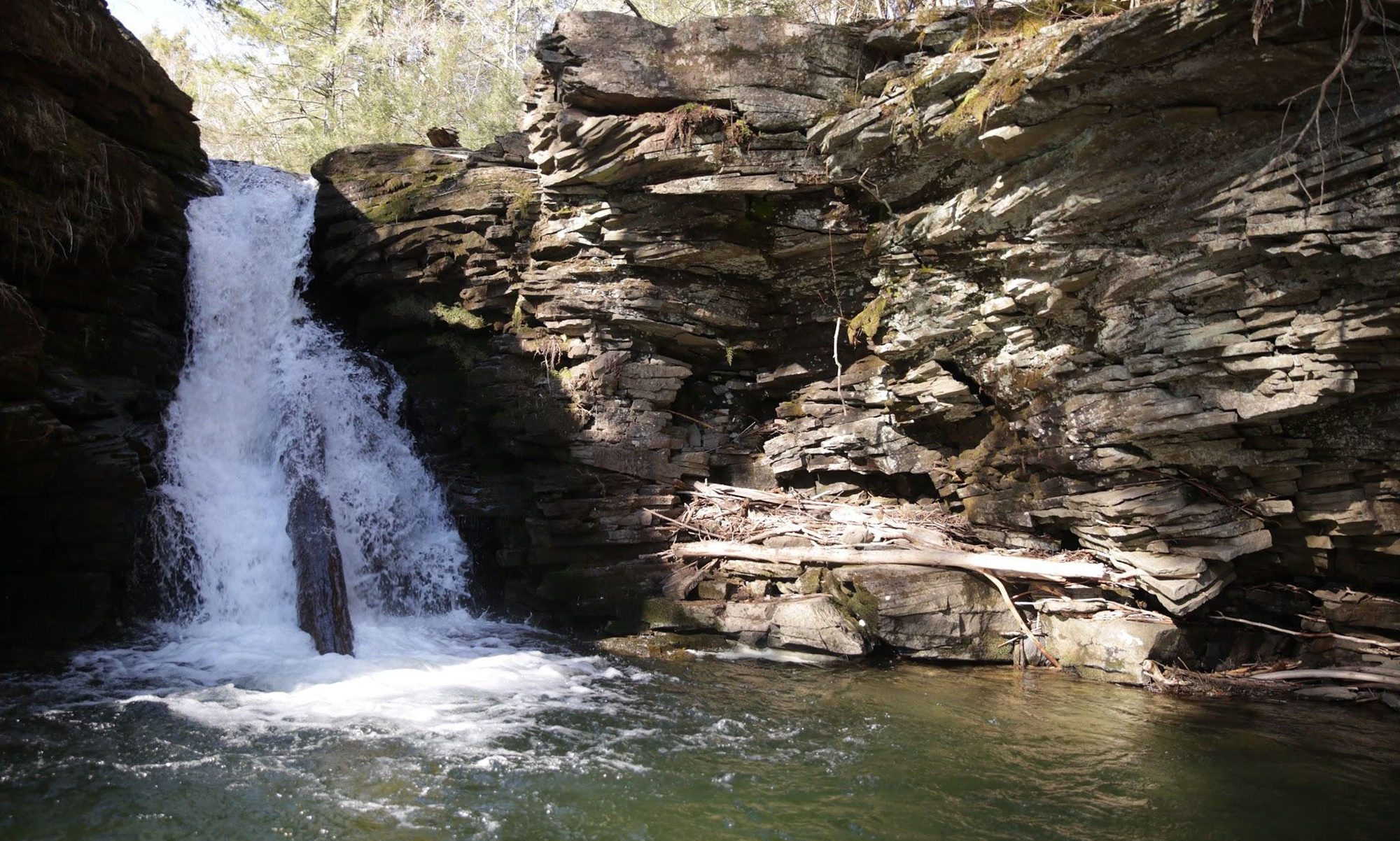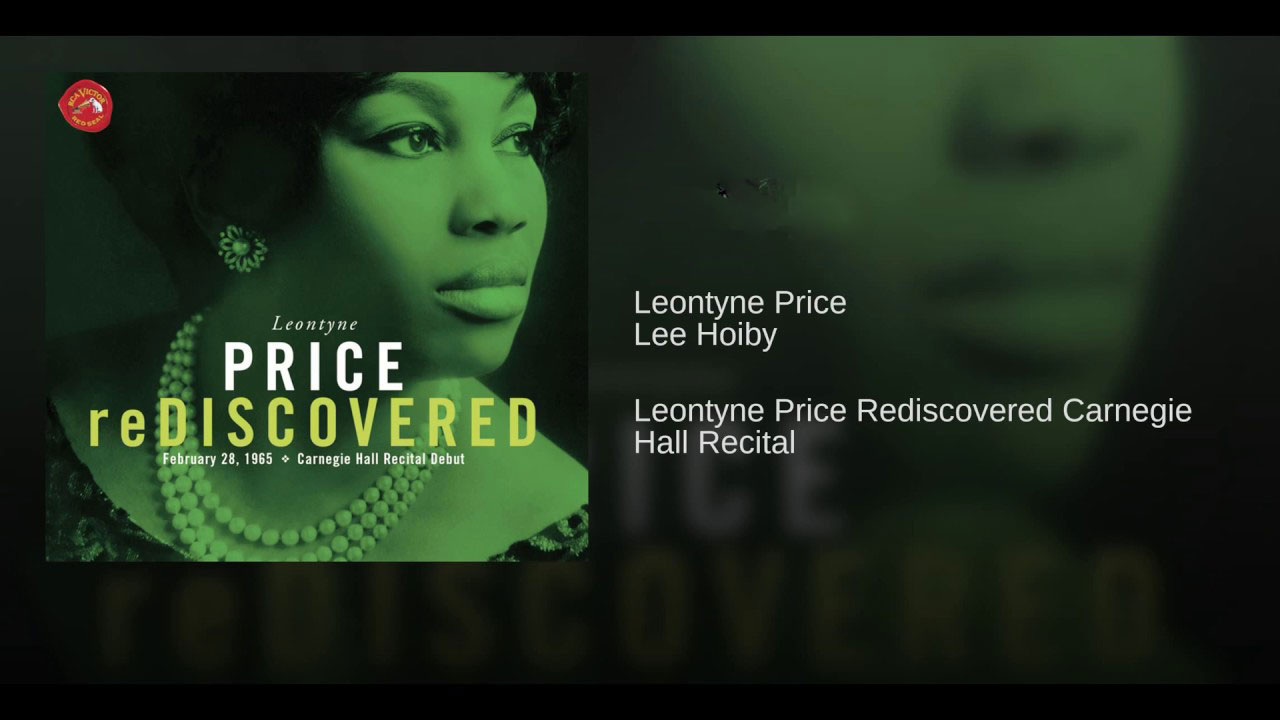Leontyne Price Sings Eight Songs By Lee Hoiby
Live in Concert from 1965 – 1991
1, 4, 5, 6: Songs for Leontyne
7: The Shining Place ©Southern Music
2: Eleven Songs ©Rock Valley Music
3: Thirteen Songs ©G. Schirmer
8: © Estate of Thornton Wilder.
1: Leontyne Price Rediscovered (RCA RedSeal 09026-63908-2)
7: Leontyne Price: Return to Carnegie Hall (RCA Red Seal 09026-68435-2)
Then five new songs (performed from manuscript) by Lee Hoiby opened Miss Price’s treasury of interpretive powers. Colors flowed freely, her intelligence transferred itself into powerful communication and a rare singer of songs was heard. Hoiby was in the audience to share the warm response to his songs: A River Merchant’s Wife, The Dust of Snow, Summer Song, Winter Song and In the Wand of the Wind. The songs are dramatic ones showing Hoiby to be a first-rate vocal writer. . . Wonderfully effective, they are a fine addition to the repertoire and to Miss Price’s program.
Charles Crowder, Washington Post, 1967
The concert was flawless, but I appreciated especially the magnetic American songwriter Lee Hoiby, [whose] work is alternately sensitive, humorous, and coloristic. The Serpent – a clever bit of fun, full of laughter and serpentine logic – was clearly the audience’s favorite.
Sacramento Bee, 1981
The three Hoiby songs are each worth hearing again. The Serpent in fact, is a song in a million – legitimately funny, not coy, and at the same time, vocally rewarding. The Message and Autumn both expressive and lyric, exploited the soprano’s range, emphasizing her top and her capacity for line.
Speight Jenkins, New York Post, 1986
The highlights included three alternately richly romantic and humorous songs of Lee Hoiby – outstanding items of the genre.
Bill Zakariasen, New York Daily News, 1986
The second half of the program was particularly pleasurable as her voice warmed and glistened, floating at times with sublime beauty. These moments occurred most often in several numbers by Lee Hoiby.
Charles Passy, Palm Beach Post, 1987
For this listener, the most successful items were four songs by the American composer Lee Hoiby, which benefited as much from the full-bloomed vitality of Price’s singing as her flair for storytelling: in the amusing ballad The Serpent she reduced her big soprano to a wicked whisper.
John von Rhein, Chicago Tribune, 1987
More at home in English, Price sang four songs by Lee Hoiby: Lady of the Harbor, Be Not Afeard, from The Tempest, The Serpent and In the Wand of the Wind. She made these attractive poem settings the highlight of the concert. Hoiby shuns prissy note-for-word adaptations; he seems to set verse in one arching impulse.
Allan Ulrich, San Francisco Examiner, 1988
Perhaps the most successful portion of the recital involved four songs by Lee Hoiby. These heartfelt, exquisitely made lyric pieces, their high tessitura beautifully tailored to Price’s voice, amounted to a splendid tribute from one American artist to another.
John von Rhein, Chicago Tribune, 1990
For connoisseurs, perhaps most memorable was the emotional impact in songs by Marx, Strauss and Hoiby, in particular Hoiby’s thrilling Wild Nights, Goodby, Goodby World and There Came a Wind Like a Bugle.
Daniel Cariaga, Los Angeles Times, 1990
Evening, by Lee Hoiby, ended with the prettiest high note Price had sung all afternoon, and Hoiby’s comic charmer, The Serpent, was an unexpected crowd-pleaser.
Adam Z. Horvath, New York Newsday, 1991
The singer’s selections of songs by Lee Hoiby was a highpoint of the evening. His setting of Goodby, Goodby World from Thornton Wilder’s “Our Town” is a particularly impressive example of his richly effective neo-romantic style; it was sung with disarming tenderness and time-stopping poignancy. The soprano had a ball with always it’s Spring, Hoiby’s setting of an e. e. cummings poem. The rapturous repetition of “And yet abide the world” at the conclusion of There Came a Wind Like a Bugle made a thrilling impact.
Tim Smith, South Florida Sun-Sentinel, 1992
Particularly memorable in the varied program was . . . the soaring height to which she lifted the panoramic ending of Lee Hoiby’s There Came a Wind Like a Bugle.
Nancy Raabe, Milwaukee Sentinel, 1992
When Price was fully warmed up and singing in her element, as in Lee Hoiby’s There Came a Wind Like a Bugle, her pitch was locked in and her vocal colors astonished with their richness. And the power!”
Tom Strini, Milwaukee Sentinel, 1992
The best, however, was a delightfully varied grouping by the American composer Lee Hoiby. . . . Price sang the songs as if they were old friends she were welcoming to a party: no word was wasted, no emotion untouched, particularly in the lushly grand Goodby, Goodby World.
Charles Passy, Palm Beach Post, 1992
It was in the American set – especially the playful leaps and flourishes of Hoiby’s always it’s Spring – that left the most vivid impression of Price’s conviction and still formidable technique.
Lesley Valdes, Philadelphia Enquirer, 1993
The most valuable aspect of this CD, though, is the glimpse it affords of Price the Lieder singer and advocate for American song. Lee Hoiby composed songs specially for her, and it is good to have at least a souvenir of their collaboration in these three beautiful songs. Always it’s spring is a text by e. e. cummings, with a great high-lying climax on the final image of people floating away into the sky, There came a wind like a bugle and Wild nights both set texts by Emily Dickinson and, near the end of the concert, Price is in full cry, words clear, voice poised as of old.
Gramophone
Lee Hoiby totalement inconnu en France, a composé une dizaine d’opéras . . . et de nombreuses mélodies. Nous en découvrons deux, d’une facture on ne peut plus classique, qui témoignent d’une belle inspiration, magnifiée par la voix de l’artiste. On regrette qu’il n’y en ait pas davantage, car il s’agit d’une rareté absolue qui constitue l’un des atouts majeurs de cet enregistrement. (tr. one of the main assets of this recording)
Christian Peter, Forum Opera, 2003

